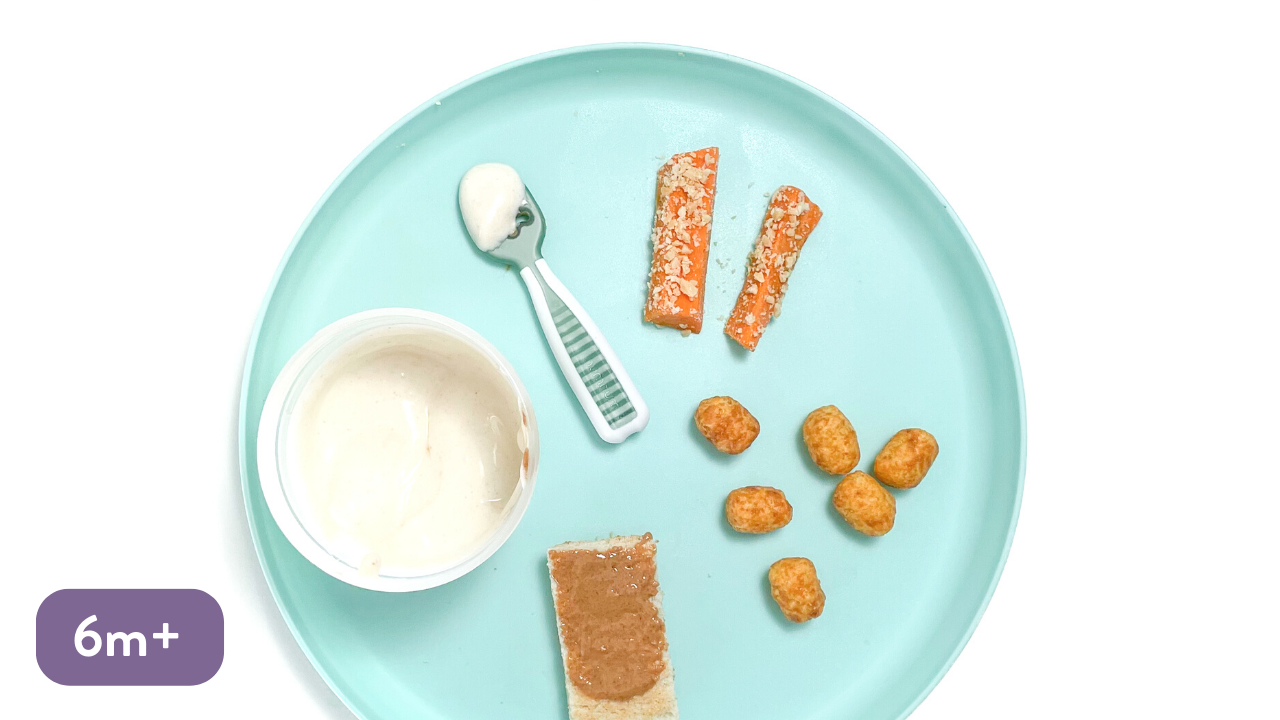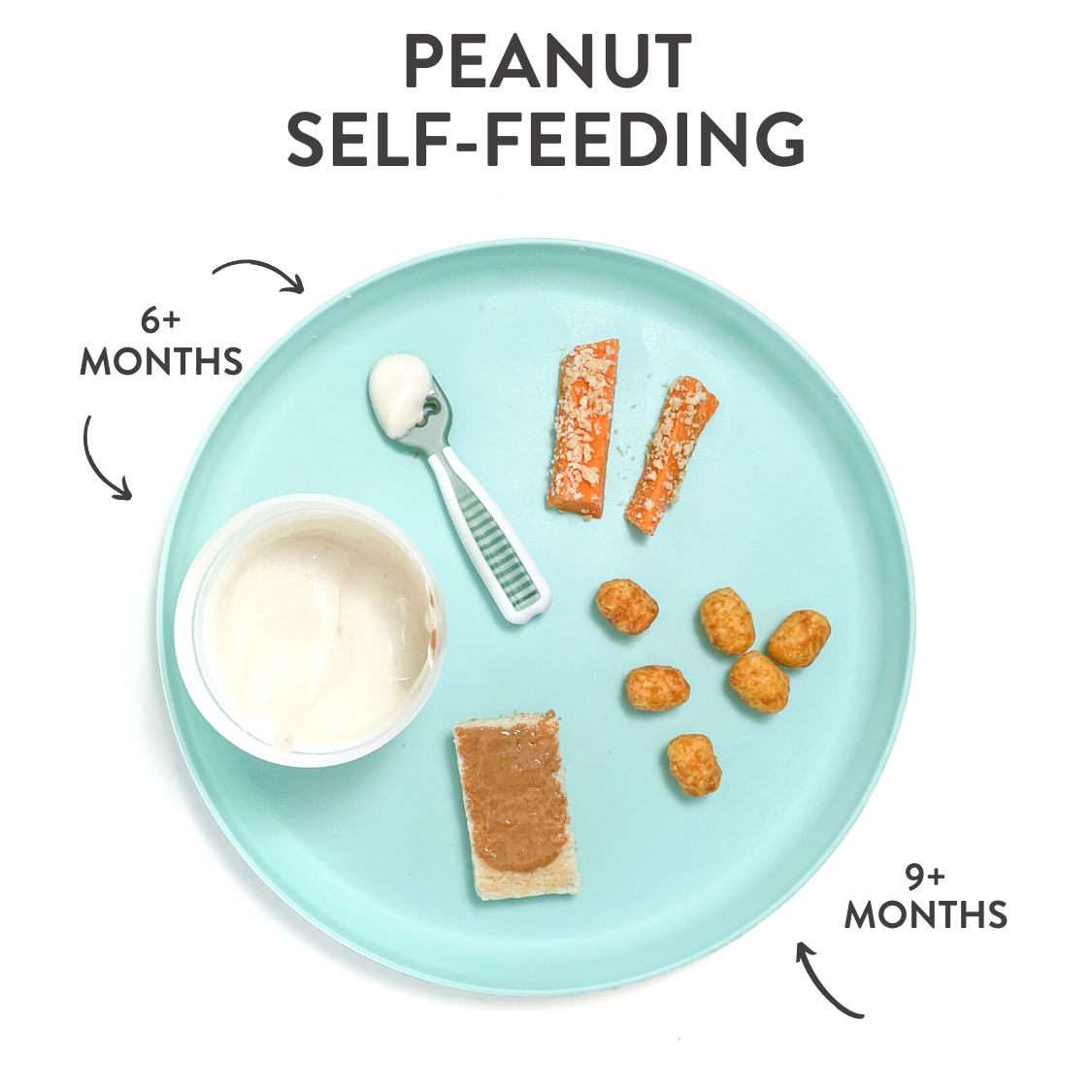
Peanuts for Self-Feeding
Peanuts, along with other nuts and nut butters, present a choking risk to babies and kids. To minimize this risk, make sure to thin out peanut butter with water, formula, breast milk or pureed fruit. You can also sprinkle finely ground peanuts on foods.
- 6+ months - Pureed with Oatmeal, Yogurt, or Avocado: Mix peanut butter into these purees to help baby self-feed from a spoon. Steamed sweet potato wedges or apples with finely crushed peanuts; thinned out peanut butter on banana: To help baby with their palmar grasp.
- 9+ months - Smear on toast or peanut puffs: You can serve puffs to give your baby practice with their developing pincer grasp or serve toast if your baby is still struggling with it.
- 12+ months - PB and Honey Sandwich; PB Banana Smoothie: PB and honey is a great combination, and now that your baby is 1, honey can be introduced!

Peanuts for Self-Feeding
Prep Time: 5 minutes
Cook Time: 0 minutes
Servings: 2 servings
Age: 6+ months
Ingredients
- 1/4 cut plain Greek yogurt
- 1 tsp smooth peanut butter
Instructions
- Spoon the yogurt and peanut butter into a small bowl.
- Mix until fully incorporated.
Notes
Age: 6+ months
Yield: 2 portions for baby
Storage: you can store the peas in an air-tight container in the fridge for up to 4 days.
Puree for Self-Feeding: Yes, it can be done! You can offer purees and still allow your baby to lead the way with self-feeding.
- Place a few spoonfuls of purees directly on the tray or in a bowl for your baby to dip fingers into. Model how to dip your fingers into the puree and bring them to your mouth, to taste some.
- Offer your baby a pre-loaded self-feeding utensil and hold it out for them to grasp or set on their tray.
- Use a solid food as a dipper. You can also offer a soft stick-shaped piece of food, such as a soft roasted carrot or bread lightly toasted and cut into strips to dip into the puree.
Nutritional Information
Surprisingly, peanuts are actually not a nut at all- they are considered to be a legume and related to beans and lentils. And they boast an impressive nutritional profile.
- Peanuts are a good source of protein and are high in fats.
- They provide an array of different vitamins and minerals, including multiple B vitamins, vitamin E, copper, and phosphorus.
- They contain iron, necessary for preventing iron deficiency anemia, and fiber for healthy digestion.
